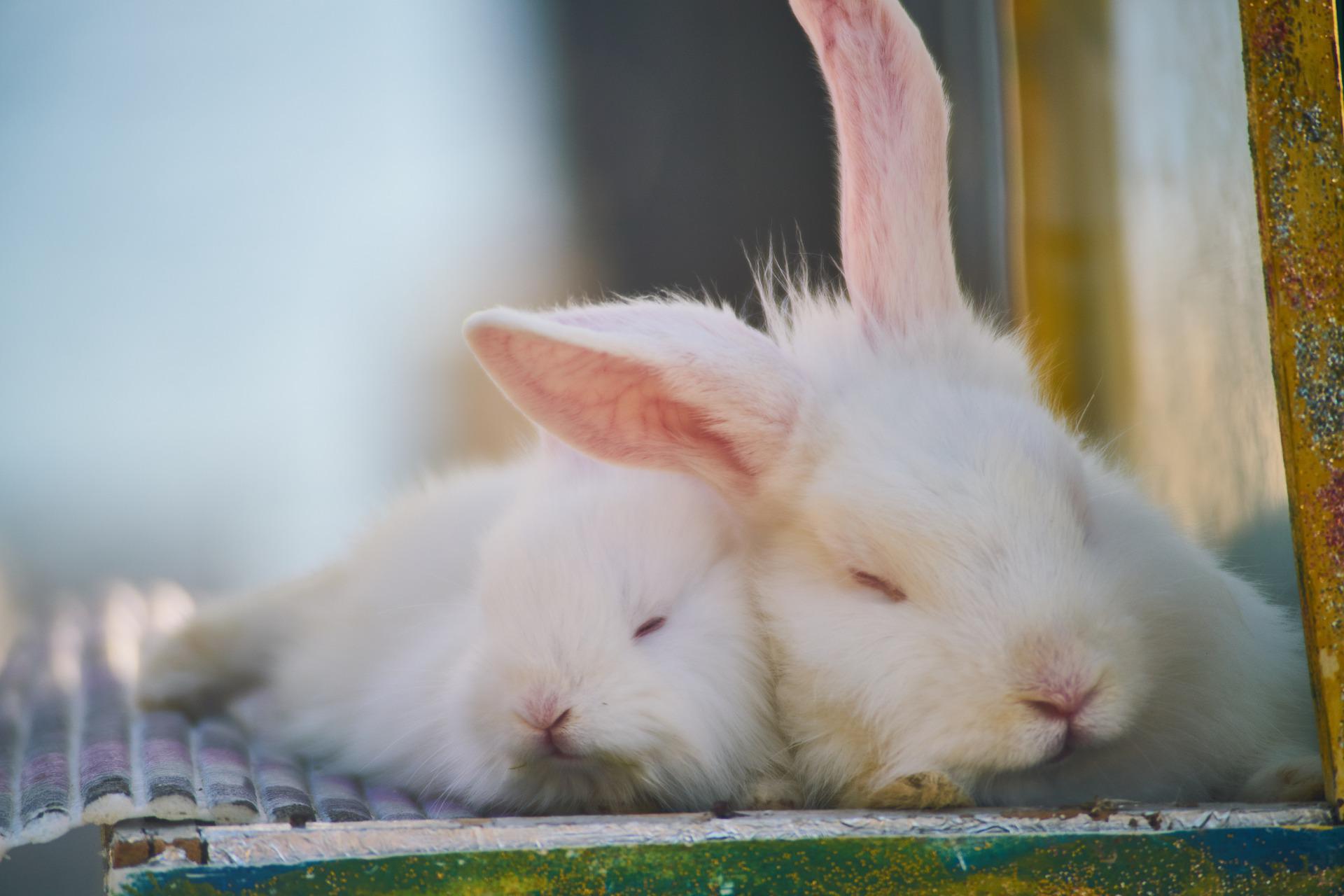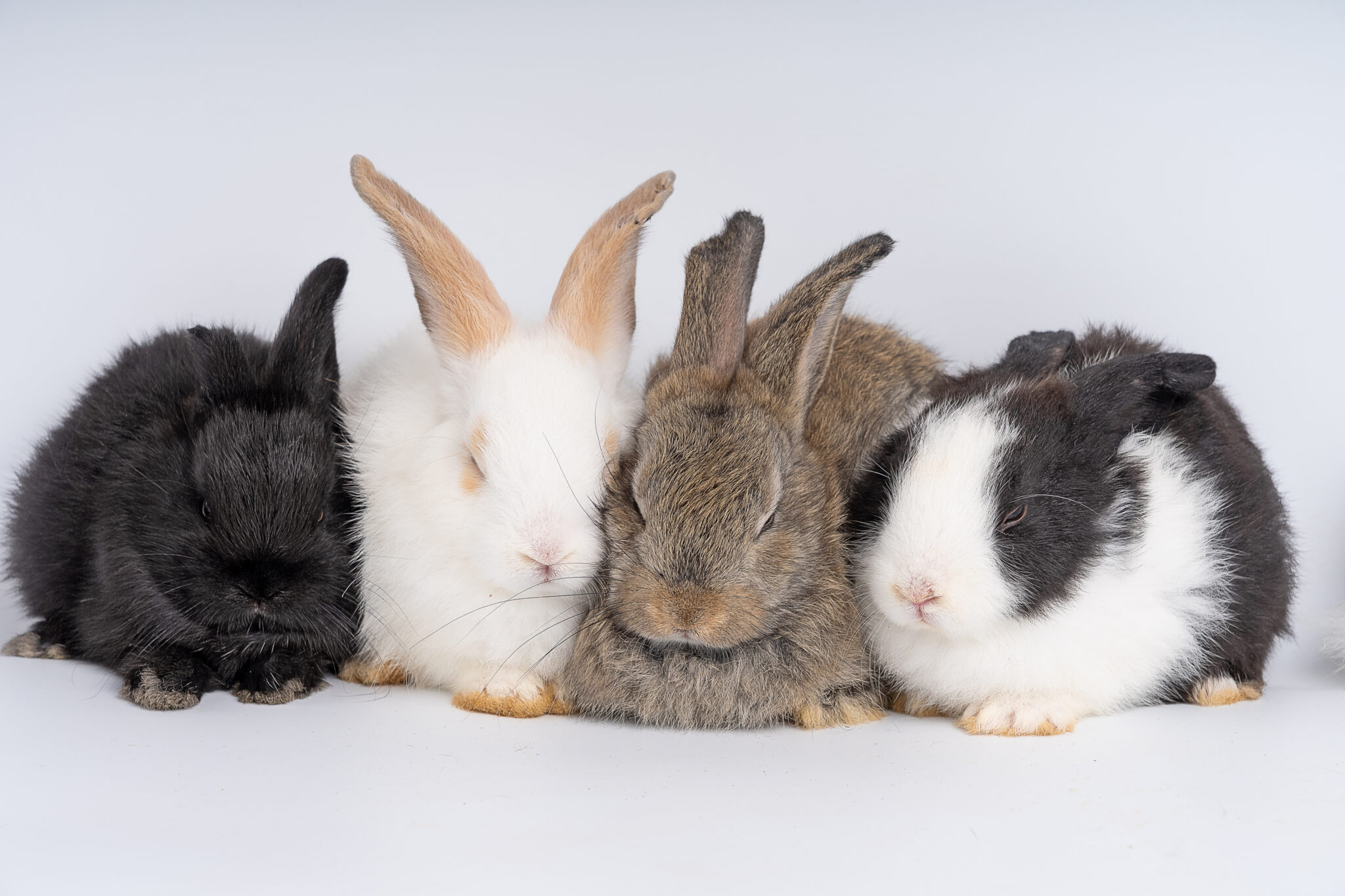Ever wondered if rabbits sleep? Well, they sure do, but not in the way you might think! Rabbits have a unique sleeping pattern that’s both fascinating and a little quirky. If you’re a proud bunny parent or just curious about these adorable creatures, understanding their sleep habits is key to keeping them happy and healthy. So, let’s dive in and uncover the mysteries of bunny bedtime!
Rabbits are more than just cute, fluffy pets—they’re complex creatures with interesting behaviors. Sleep plays a crucial role in their daily routine, affecting their health and well-being. Understanding how and when they sleep can help you provide the best care for your furry friend.
In this article, we’ll explore everything you need to know about rabbit sleep patterns, from their natural instincts to tips for creating the perfect sleeping environment. So, whether you’re a newbie or a seasoned bunny owner, there’s something here for everyone!
Why Is Sleep Important for Rabbits?
Sleep isn’t just about resting—it’s essential for rabbits’ physical and mental health. Just like humans, rabbits need quality sleep to recharge their energy, support immune function, and maintain overall well-being. But here’s the twist: rabbits are crepuscular animals, meaning they’re most active during dawn and dusk. This unique behavior affects their sleep schedule in surprising ways.
When rabbits don’t get enough sleep, it can lead to stress, weakened immunity, and even behavioral issues. So, ensuring your bunny has a peaceful place to rest is crucial for their happiness and longevity.
Do Rabbits Sleep with Their Eyes Open?
One of the most intriguing facts about rabbits is that they sometimes sleep with their eyes open. Yes, you read that right! This phenomenon is due to a thin membrane called the nictitating membrane, which acts like a built-in eyelid. It allows rabbits to stay alert while resting, a survival mechanism inherited from their wild ancestors.
- Mastering Ssh Remote Control For Raspberry Pi Your Ultimate Guide
- Unlocking The Secrets Of Diatoya A Comprehensive Guide To Master The Art
However, if your rabbit always sleeps with its eyes open, it might indicate stress or discomfort. Make sure their environment is calm and secure to encourage deeper, more restful sleep.
How Can You Tell If a Rabbit Is Sleeping?
It’s not always easy to spot a sleeping rabbit, especially if they have their eyes open. Here are some signs to look for:
- Relaxed body posture
- Slow, steady breathing
- Ear position (often drooping or relaxed)
- Gentle twitching (similar to dreaming)
Remember, every rabbit is different, so pay attention to your pet’s unique behaviors to understand their sleep patterns better.
How Long Do Rabbits Sleep?
Rabbits typically sleep for around 8-10 hours a day, but their sleep is divided into short bursts rather than one long stretch. This intermittent sleep pattern allows them to stay alert and ready to react to potential threats.
Interestingly, rabbits often nap during the day and night, taking advantage of quieter moments to recharge. So, don’t be surprised if you catch your bunny snoozing at unexpected times!
Factors That Affect Rabbit Sleep Duration
Several factors can influence how much sleep a rabbit gets, including:
- Age: Younger rabbits tend to sleep more than adults.
- Health: Illness or injury can increase sleep needs.
- Environment: A noisy or stressful environment may disrupt sleep.
- Diet: Proper nutrition supports healthy sleep patterns.
By addressing these factors, you can help your rabbit get the rest they need.
Creating the Perfect Sleeping Environment for Your Rabbit
A comfortable and safe sleeping space is essential for your rabbit’s well-being. Here’s how you can create the ideal environment:
First, choose a quiet area of your home where your rabbit can relax without disturbances. Provide a soft, cozy bed or blanket for them to rest on, and make sure the temperature is comfortable—not too hot or cold.
Additionally, ensure their sleeping area is free from drafts and bright lights. Rabbits prefer dim, calm environments for sleeping, so consider using a light-dimming curtain or cover if needed.
Tips for Encouraging Better Sleep
Here are some practical tips to help your rabbit sleep better:
- Establish a consistent daily routine.
- Offer plenty of mental and physical stimulation during waking hours.
- Provide a safe hiding spot, like a burrow or tunnel, for added security.
- Avoid sudden loud noises or changes in their environment.
By following these tips, you’ll create a peaceful haven for your bunny to rest and recharge.
Do Wild Rabbits Sleep Differently from Domestic Rabbits?
Wild rabbits and domestic rabbits share similar sleep patterns, but there are some key differences. In the wild, rabbits face constant threats from predators, so their sleep is lighter and more fragmented. They rely heavily on their ability to sleep with one eye open to stay safe.
Domestic rabbits, on the other hand, live in safer environments, allowing them to relax more during sleep. However, they still retain many of their wild instincts, so providing a secure space is vital for their comfort.
How Can You Mimic a Wild Rabbit’s Environment at Home?
If you want to help your domestic rabbit feel more secure while sleeping, try these ideas:
- Provide hiding spots, like tunnels or enclosed beds.
- Use natural materials, such as hay or wood shavings, for bedding.
- Keep their sleeping area away from high-traffic zones.
These small adjustments can make a big difference in your rabbit’s sleep quality.
Common Myths About Rabbit Sleep
There are plenty of misconceptions about rabbit sleep, and it’s important to separate fact from fiction. Let’s debunk some of the most common myths:
- Rabbits don’t need sleep (false! They need just as much rest as any other animal).
- Rabbits only sleep at night (false! They’re crepuscular, meaning they’re active during dawn and dusk).
- Rabbits don’t dream (false! They exhibit REM sleep, which suggests they do dream).
By understanding the truth about rabbit sleep, you can better meet your pet’s needs.
Why Is It Important to Understand Rabbit Sleep Patterns?
Knowing how and when your rabbit sleeps can help you identify potential health issues early on. For example, if your rabbit suddenly starts sleeping more or less than usual, it could be a sign of illness or stress. By staying informed, you’ll be better equipped to care for your furry friend.
What Happens If a Rabbit Doesn’t Get Enough Sleep?
Just like humans, rabbits can suffer from sleep deprivation. Lack of sleep can lead to a range of problems, including:
- Increased stress and anxiety
- Weak immune system
- Behavioral changes, such as aggression or lethargy
- Decreased appetite
If you notice any of these symptoms, it’s important to evaluate your rabbit’s sleeping environment and consult a veterinarian if necessary.
How Can You Help a Sleep-Deprived Rabbit?
Here are some steps you can take to help a sleep-deprived rabbit:
- Identify and eliminate potential stressors in their environment.
- Provide a quiet, comfortable sleeping space.
- Offer calming activities, like gentle petting or soft music.
With a little patience and care, your rabbit can get back on track to healthy sleep.
Conclusion: Why Understanding Rabbit Sleep Matters
So, do rabbits sleep? Absolutely! And understanding their sleep patterns is a crucial part of being a responsible bunny owner. By creating a safe and comfortable sleeping environment, you can ensure your rabbit gets the rest they need to thrive.
Remember, every rabbit is unique, so pay attention to your pet’s individual needs and preferences. If you have questions or concerns about your rabbit’s sleep, don’t hesitate to reach out to a veterinarian for guidance.
Now that you know all about rabbit sleep, why not share this article with fellow bunny lovers? Together, we can help spread awareness and improve the lives of these amazing creatures. And hey, if you have any tips or stories of your own, feel free to drop them in the comments below!
Table of Contents
- Why Is Sleep Important for Rabbits?
- Do Rabbits Sleep with Their Eyes Open?
- How Long Do Rabbits Sleep?
- Creating the Perfect Sleeping Environment for Your Rabbit
- Do Wild Rabbits Sleep Differently from Domestic Rabbits?
- Common Myths About Rabbit Sleep
- What Happens If a Rabbit Doesn’t Get Enough Sleep?
- Conclusion: Why Understanding Rabbit Sleep Matters



Detail Author:
- Name : Prof. Vickie Ondricka III
- Username : aric.gislason
- Email : antwon.johns@vonrueden.com
- Birthdate : 1985-04-03
- Address : 7981 Jolie Tunnel Sadyeside, VT 49498
- Phone : (347) 891-2285
- Company : Koss, Wolf and Johns
- Job : Central Office
- Bio : Hic doloribus accusamus nam sit dolorum iste. Et minus numquam quo itaque quo in laborum. Earum quis maxime aliquid. Tenetur culpa dicta cum doloremque omnis molestias temporibus.
Socials
facebook:
- url : https://facebook.com/connorkessler
- username : connorkessler
- bio : Sit voluptatem maiores consequuntur et. Omnis tenetur ut labore provident.
- followers : 2272
- following : 137
instagram:
- url : https://instagram.com/connorkessler
- username : connorkessler
- bio : Id ea deserunt sit incidunt enim nulla ipsam. Nihil alias id expedita. A quibusdam culpa qui ut.
- followers : 1078
- following : 1649
tiktok:
- url : https://tiktok.com/@connor.kessler
- username : connor.kessler
- bio : Voluptates est ullam placeat placeat.
- followers : 6786
- following : 2226